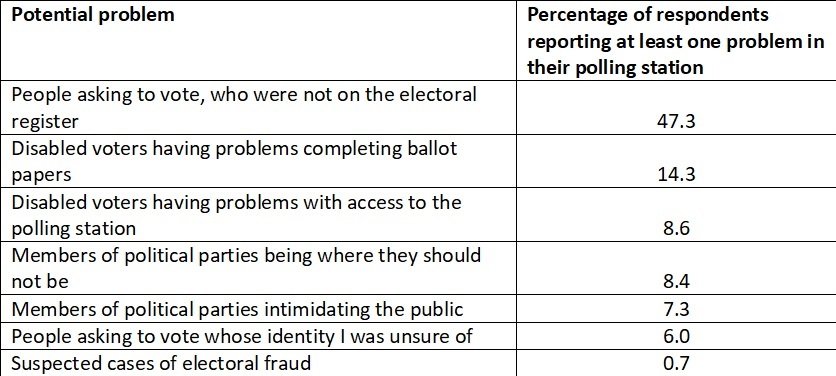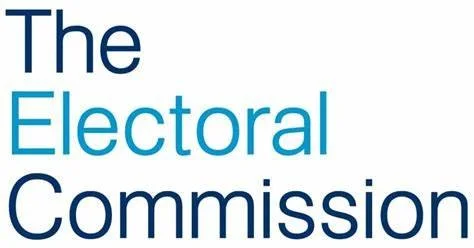Summary - updated 29th APril 2022
The UK government proposed an Elections Bill in 2021, which was eventually gained royal assent in April 2022.
During this time, members of the EIP team were regularly involved in:
submitting written evidence to select committees
giving oral evidence to select committes
advising parliamentarians and civil society groups as part of the Democracy Defence Coalition.
assisting with the drafting of parliamentary amendments.
providing media comment and analysis
regular blogs and analysis.
A summary of the Elections Act
A summary of the key ways in which UK elections are changing are sumamrised here. The Bill covers a broad range of proposals including:
Compulsory photographic voter identification in UK Parliamentary elections.
The incumbent government will be able to give directions to the Electoral Commission.
Abolishing the 15-year limitation on eligible British citizens living overseas to be registered to vote in relevant elections in the UK.
New sanctions for undue influence and intimidation
Information to be included in digital election material.
Requirements for electors to re-apply for postal votes.
Changing the electoral system for some subnational elections.
RESOURCES
Below are some of the resources developed by the EIP - alongside other materials for reference.
Academic resources for policy makers examining the Bill
“This is a very broad ranging Bill which covers many aspects of UK elections. It really should have been developed on a cross-party basis to preserve trust in British elections and democracy - so that electoral rules don’t become partisan footballs. The Public Administration and Constitutional Affairs Select Committee is right: we should pause the Bill so that we can take stock.”
An analysis of the strengths and weaknesses of the uk system
The main weaknesses of UK elections, PEI data shows, are that they are unfair to smaller parties and citizens are missing from the electoral register. By contrast the PEI suggests that the electoral authorities perform very well in the UK. Responses suggest no serious problems with the counting process, announcement of results and security of ballot boxes, for example.
Figure 1: The extent that potential defects in the electoral process are found at UK General Elections. Source: author, using data from the Electoral Integrity Project. Scale 1 to 5 where 1=low, 5=high. Based on the 2015 and 2017 general elections.
A second source of evidence that provides an overview of the presence of potential problems are surveys of poll workers – the officials or run polling stations on the day of the election. James and Clark assessed the problems that occurred in polling stations at the 2018 and 2019 local elections in England, based on responses from 5,659 poll workers.
Table 1 demonstrates that people asking to vote, who were not on the electoral register was by far the most common problem, reported by 47.3 percent of poll workers.
It also suggests that there is no evidence of widespread voter fraud, ti justify voter identification.
Table 1: The prevalence of different problems at English polling stations in the 2018 an 2019 local elections. Toby S. James & Alistair Clark (2020) Electoral integrity, voter fraud and voter ID in polling stations: lessons from English local elections, Policy Studies, 41:2-3, 190-209.
“The Elections Bill is one of the most important to be proposed in the history of British democracy. But it does not address the main weaknesses with British elections. In fact, it could undermine electoral integrity in Britain.”
Voter id laws will reduce turnout
Voter identification pilots have been run in the UK in 2018 and 2019. The voter id pilots showed that many people were unable to vote because either i) they did not have the necessary identification or ii) they refused to provide it on ideological grounds.
Table 2 shows that over half of poll workers experienced an issue with a voter who was unable to vote because they did not have the appropriate identification. However, many citizens also declined to provide identification because they did not want to. This represents a major problem with the voter identification requirements.
Table 2: Source: author, based on research by James and Clark.
Evidence from Northern Ireland also shows how turnout can be affected. Photographic voter identification requirements have been in place in Northern Ireland since the early 2000s and was first in place at the Northern Ireland Assembly Elections in 2004. It was estimated that around 25,000 voters did not vote in that election because they did not have the required form of identification. Almost 3,500 people were initially refused a vote for not presenting the required identification requirements. This was 2.3% of the electorate.
The government’s own research suggests that 9% of the public do not have in-date and recognisable identification. The availability of identification is lower amongst those with a severely limiting disability, the unemployed and those without educational qualifications.
THE BILL WILL GIVE THE GOVERNMENT CONTROL OVER THE ELECTORAL COMMISSION
Independent electoral authorities are essential components of democracy and this is widely established in international best practices and by academic research. Independence from the government of the day is important because it prevents an incumbent changing laws or practices to suit their political interests. It can also strengthen public trust in the political process. Just as the judiciary should be independent, electoral officials should be non-partisan. [1]
The Bill, in contrast, proposes to weaken the Commission’s independence. It proposes to give the government greater power by allowing it to designate a Strategy and Policy Statement. It gives Parliament (but in practice government, assuming that it has a majority) the power to examine the Electoral Commission’s compliance with this. It also seeks to amend the Electoral Commission’s powers to expressly prevent it from bringing prosecutions in England, Wales and Northern Ireland.
This is therefore a direct violation of international best practices and would constitute democratic backsliding because it is giving the government and future governments greater control over the conduct of elections - the process through which citizens are enabled to hold government to account.
It should be noted that democratic backsliding is an important theme in many other countries as governments have sought to exert control over the electoral process.[2]
“Electoral authorities should be independent of the government of the day to ensure trust in our elections. This Bill takes the UK in the opposite direction.”
[1] Toby S. James (2020) Comparative Electoral Management (London and New York: Routledge)
[2] VDEM (2021) Autocratization Turns Viral: Democracy Report 2021.
FURTHER Commentary on voter identification reforms:
A bipartisan compromise on voter identification is needed in the uk. Canada has a blueprint., Toby James, EIP Blog and Political Studies Association Blog.
‘Voter fraud isn’t the problem: painting an accurate picture of a British election day’ The Conversation, 9th December 2019.
On the reforms to the Electoral Commission and EMB independence:
‘Boris Johnson plans to take control of the independent Electoral Commission in another assault on democratic institutions’ Toby James in The Conversation.
Evidence submitted to Parliament from the Electoral Integrity Project:
The Elections Bill, written evidence to the UK Parliamentary Select Committee on Public Administration and Constitutional Affairs, Toby S. James (UEA)
The Elections Bill, oral evidence to the UK Parliamentary Select Committee on Public Administration and Constitutional Affairs, Toby S. James (UEA).
‘The Elections Bill’ Written Evidence to the Scottish Parliament Standards, Procedures and Public Appointments Committee Inquiry on The Elections Bill, Toby S. James, November 2021.
Legislative Scrutiny: Elections Bill, Oral evidence to the Joint Committee on Human Rights, July 2021.
Published Parliamentary Select Committee Reports:
Joint Committee on Human Rights, Legislative Scrutiny Report.
Academic studies
(2020) ‘Electoral integrity, voter fraud and voter ID in polling stations: lessons from English local elections‘, Policy Studies, 41 (2-3) p.190-209, Toby James and Alistair Clark.
(2020) Comparative Electoral Management (Routledge: London and New York).
(2019) Building impartial electoral management? Institutional design, independence and electoral integrity, International Political Science Review, Carolien van Ham and Holly Ann Garnett.
(2019) ‘Electoral Management and the Organisational Determinants of Electoral Integrity‘, International Political Science Review, with Holly Ann Garnett, Leontine Loeber and Carolien van Ham, 40 (3) 295-312.
(2019) Electoral Integrity Report 2019.
(2018) ‘Are UK elections conducted with integrity, with sufficient turnout?‘ in Patrick Dunleavy (eds) The UK’s Changing Democracy. London: LSE Press.
(2017) ‘Poll Workers’ in Pippa Norris and Alesandro Nai (eds), Watchdog Elections: Transparency, Accountability, Compliance and Integrity. Oxford and New York: Oxford University Press.
(2014) ‘Electoral Management in Britain‘ in Pippa Norris, Richard Frank and Ferran Matinez I Coma (eds) Advancing Electoral Integrity (New York: Oxford University Press).
KEY RECCOMMENDATIONS FOR THE LORDS
VOTER ID:
Clause 1, Schedule 1 of this bill (pertaining to voter identification) should be removed.
Failing that either:
The list of available ID measures should be extended
A ‘vouching’ system allows for another person to attest for the identity of someone without ID and their vote can still be cast. This system is used in Canada. Schedule 1, page 75, line 9, at end insert “, or another eligible voter who has produced a specified document to the presiding officer or clerk on that day attests to the identity of the voter.”
ELECTORAL COMMISSION
Ensure that Electoral Commission independence is maintained.
Delete Clauses 13 and 14, which amend PPERA to require a strategy and policy statement from the Electoral Commission.
Full Recommendations
The government should undertake a wider review of the quality of elections.
Speaker’s Conferences should be called when major reforms to electoral law are proposed to bring about greater consensus, less inflammatory parliamentary rhetoric and scrutiny of the legislation.
The government should therefore pursue the long-overdue consolidation of electoral law.
Voter identification requirements should not be introduced. If they are then
citizens should be enabled to cast provisional ballots if they are unable to provide identification or do not have their name on the electoral register.
electors should be allowed to present their poll card as one of many possible forms of identification.
a Canadian system of vouching should be introduced to the Bill. Citizens who do not have identification should be able to vote if another registered elector can verify their identity in a polling station
Returning Officers should be required to publish information about the number of citizens who were unable to vote at each polling station and the reason why.
A requirement to notify electors that their postal/proxy vote has expired should be set out in law.
A UK-wide approach for postal/proxy votes should be encouraged.
Postal and proxy votes should remain valid for five years.
The Electoral Commission should run a central complaints service for voters, candidates and party agents .
No changes should be made to the Electoral Commission’s role and functions.
A two-third majority to be required on all decisions made by the Speaker’s Committee.
The case for telephone/internet voting should be considered for overseas electors in the future.
The Bill is amended to clarify that EROs and ROs should be subject to Freedom of Information Requests.
EROs and ROs should be required to publish annual accounts and expenditure in a standard reporting format specified by the Electoral Commission.
The automatic registration of citizens when they receive their National Insurance Number ahead of their 16th birthday.
Providing citizens opportunities to register to vote when they access other government service – such as the DVLA, Universal Credit or the Student Loan Company.
The Act abolishes the open/edited electoral register.





